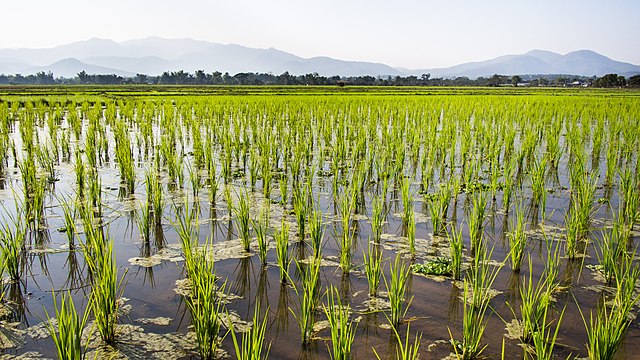Just when neighboring Philippines is navigating a price rise, rice prices in Thailand have dipped over a weakening baht.
Consequently, both export and domestic sales in Thailand in the market week ending February 23, 2024 took a dip. The country’s export prices depend on a strong performance of the baht against the dollar to gain, and its weakening lowers prices.
1 baht was 35.81 to the dollar in the week of February 23, up from the 36.65 of the foregoing week.
Aromatic grade rice was selling at 30,189 baht ($840) in week 3 of February to week 2’s 30,541 baht ($850) per tonne.
Low grade export rice was costing $559 a tonne in week 3, down by 1.43% from week 2’s average of $567.
Shipments Dip from February
Shipments have also depreciated in strange sync with the price. While January saw record shipments above the January 2023 average, February has done the reverse.
Exports up to February 4 reached 175,780 tonnes, down from the recent 4-week average of 191,183 tonnes. This is even as shipments for the week ending February 11 were down 10,000 tonnes from the 4-week average.
Key importers of Thailand’s rice in the 2023-24 season include Indonesia, China and the Philippines. Indonesia is also planning to ship 2 million tonnes this season from Thailand.
Domestic Rice Prices in Thailand Fall on Overstocking
Even as export prices and total shipments depreciate, domestic prices of all grades of rice are down by 1%.
The reason for the domestic fall, however, is not just due to a weakening denomination but surplus stock. Traders have held back export stocks till the off-season, which coincides with a low-supplied market.
This overstocking has given local consumers a reprieve of a few cents on rice purchases. As of February 25, 2024, the retail price in Bangkok averaged 51.23 baht ($1.43) a kg. Low grade rice was at 23 baht ($0.64) per kg.
Off-season rice is a popular alternative for farmers as it brings extra income. The government is however applying pressure on farmers to abandon the practice to save dwindling ground water.
While off-season rice requires 1.5 billion cubic meters of water, profitable drought-resistant crops require just 30% of that.
Rice grows during two seasons in Thailand. The first one is monsoon (wet season) from May to July, whose harvest falls between November through December. The summer (dry season), also known as the off-season begins in November though March.
Thus, with the secondary season about to hit the market, rice prices in Thailand bank on the strength of the baht.
